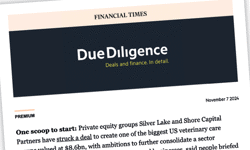Throughout the long and distinguished history of journalism, it is doubtful that there has ever been a time when we have seen so much change in the industry.
The arrival of the web has of course been one of the main drivers of this change with 23% of all media consumption in the UK (in terms of hours spent) now online. Circulations of many print titles are falling and the current economic gloom is inevitably going to make things worse.
Given these changes, being a ‘print only journalist’ has largely become an untenable position. Instead, the future of ALL journalists is surely to be multichannel and multimedia experts. Journalists in the future will need to understand that to reach the maximum audience, they not only need to use every channel available to them but that they need to fundamentally change how they create content. This is because the expectations of both the reader and the businesses that employ them are fundamentally changing.
Developing the content of the future
Embracing this brave new world is not simply a matter of adding some links into your print articles and yet this is the approach we see around us all the time. What’s needed is a total update of our thinking and skills.
This will take time and training, but the sooner we get started the sooner we’ll start learning the skills we need for the future. Below, I’ve highlighted five areas that we should all start with:
1. Develop your research skills
The web offers huge potential for journalists looking to find and research stories, create relationships with people across the globe and generally enhance traditional networks.
While I think almost all journalists are used to using Google, very few seem to use its advanced search facilities. Keeping an eye on all those reference sites that you find is also hard work unless you engage the right tools.
Here are some of the tools that I use:
* I use RSS for keeping an eye on topics that I reference often (currently I track over seventy sites through one reader).
* I share key research with colleagues (and share theirs back) using the social media website http://delicious.com
* I use Google Alerts to reference sites that I’m doing SEO work with as this shows active opportunities for link building.
* I use Twitter Search and various trending tools to see ‘what’s hot’.
* I use http://technorati.com/ to search blogs if I want to find opinions and experts rather than corporate speak.
However, because so much great information is out there, it becomes even more important that journalists avoid churnalism. Don’t just rehash press releases or hijack someone else’s story. Journalism is and always will be about having an angle or an opinion. If you can’t add anything, don’t bother.
There is a big difference between using the internet for ideas, insights and reference and embracing link journalism, to becoming a cut and paste journalist which is no more and no less than plagiarism.
And rest assured, in our digitally connected world you will be found out. Not only are your readers exploring the online world too (and many of them know more than you), but more and more publishers are using software that searches for these plagiaristic pieces to ensure that standards are being met and to make sure they are not legally liable.
2. Understand that the channel defines the style
Writing for digital channels is not simply about adding a few links in the copy. Each channel, from websites and email to blogs and mobile, has its own unique characteristics.
For example, websites normally require shorter, bullet copy for screen reading, blogs normally have a more conversational style, twittering is the skill of being concise but informative. The list goes on…
3. Develop those multimedia skills
Many larger commercial publishers are already moving towards genuine multimedia reporting with the Guardian and the Telegraph both making well publicised investments and restructures to better facilitate this new multimedia world.
It’s not just the larger companies either, as smaller publishers or new start-ups seek to gain competitive advantage by leading the multimedia rush. Why? Because the future is very much going to be multimedia as the YouTube generation raise the bar of expectation yet again.
However, we must all remember that not all multimedia is good multimedia. Too often it’s done because it can be, by people who have had no training in either the presentation skills or the technical skills required.
We must consider first why you are creating a media asset; does it fit with what we are trying to achieve and do we have the skills to do it properly? In his book, Cult of the Amateur, Andrew Keen makes a strong argument that the lack of professionalism in the digital space is assaulting our culture and leading us down a path that will lead us back to a cultural dark age.
So get trained so that you know how to script multimedia pieces (and yes it is a different skill to print journalism), how to shoot and crucially how to edit.
4. Be aware of your commercial responsibilities
For many journalists, the commercial realties of the title they were working for was something for someone else to worry about. Firstly because they were little more than distractions from the more important work of reporting stories (a very arrogant view but one which I still hear espoused even now) and secondly because it was assumed there was little one could do about it any way.
Personally I would always have disputed the second point even before the days of the web, but today it is simply untenable. The information god that is Google now rules with such an iron first over any content focused business that it simply cannot be ignored. And it’s on the journalistic front line that much of the war is now being fought.
Once upon a time in the distant digital past (say five years ago), Google was just a search engine. Today it is much more than that. It is, for much of the western world, the leading arbiter for people’s choices and, even more importantly, it has become the world’s leading reputation management engine where the reputation of people and businesses are rated through the combined power of their link recommendations.
Understanding search engines is therefore a key skill that journalists must master. The key principles are simple; great content, well presented that has an extensive network of people linking to it will more than likely be visible on Google.
As always, the devil is in the detail and search engines are no different. We don’t have the space here to explain how search engines work but if you don’t know about, and understand, key concepts such as metadata, anchor text, link building and keywords then you need to prioritise doing something about it.
This means journalists are to a great extent now responsible for the numbers of readers they get and therefore also responsible, to a much greater extent than before, with creating direct revenues (audience generally means revenue) for the business. Many of the publishers I work with are beginning to understand this so when they hire and fire it’s these skills that are often being looked at.
5. Learn how to engage with your audience
Web 2.0 is fundamentally changing the way that ‘publishers’ and ‘content producers’ interact with their public. The line between professional and amateur has virtually disappeared as huge swathes of people choose to participate in rather than just follow the debate.
In the view of Philip Buxton from Mediaquake, this is core to the current shift in journalistic practice:
"The most fundamental change to how journalists approach digital, as opposed to print, publishing surrounds the audience's ability to interact. It sounds like a fluffy, abstract concept but it utterly defines the shift.
In practical terms, that ability means, for example, that the 'right to reply' that is so crucial for a print journalist to build into their stories before they publish, can take place after publication. Indeed, the right to reply becomes a fundamental part of the story since contributions from readers - often including the people and companies being written about - can help to grow its accuracy and depth.
The role of the journalist in this world is to develop and seed genuinely new and interesting facts and opinions, and then act as host to the conversations those things start. If they do it well, they will find a much more vital and rewarding existence online than they ever expected from working in traditional media."
There is a perfect illustration of this clash between old and new journalism at http://www.onemanandhisblog.com/archives/2009/02/nuj_effing_blogs.html Enjoy and please participate!
Renaissance
Unlike some of the doom mongers out there, I don’t see this as the death of professional journalism. Rather it could mark the beginning of a renaissance where the old values of journalism based around good investigation, great contacts, sound judgement and good writing will be as, if not more, important in the future.
But the world really is changing. The technical and cost restrictions of working in a multimedia environment are disappearing rapidly; Google’s power to control content distribution is a reality and our readers are already expecting a richer more interactive experience from their media. They’ll get what they want, so the question really is just about who is going to provide it.
FEATURE
Cultural Shift
Of all the disciplines in publishing, the one that has probably had to travel furthest to embrace the multimedia world is journalism. Craig Hanna looks at some of the issues journalists face when switching from a print-focused publishing strategy to a web-focused strategy.










